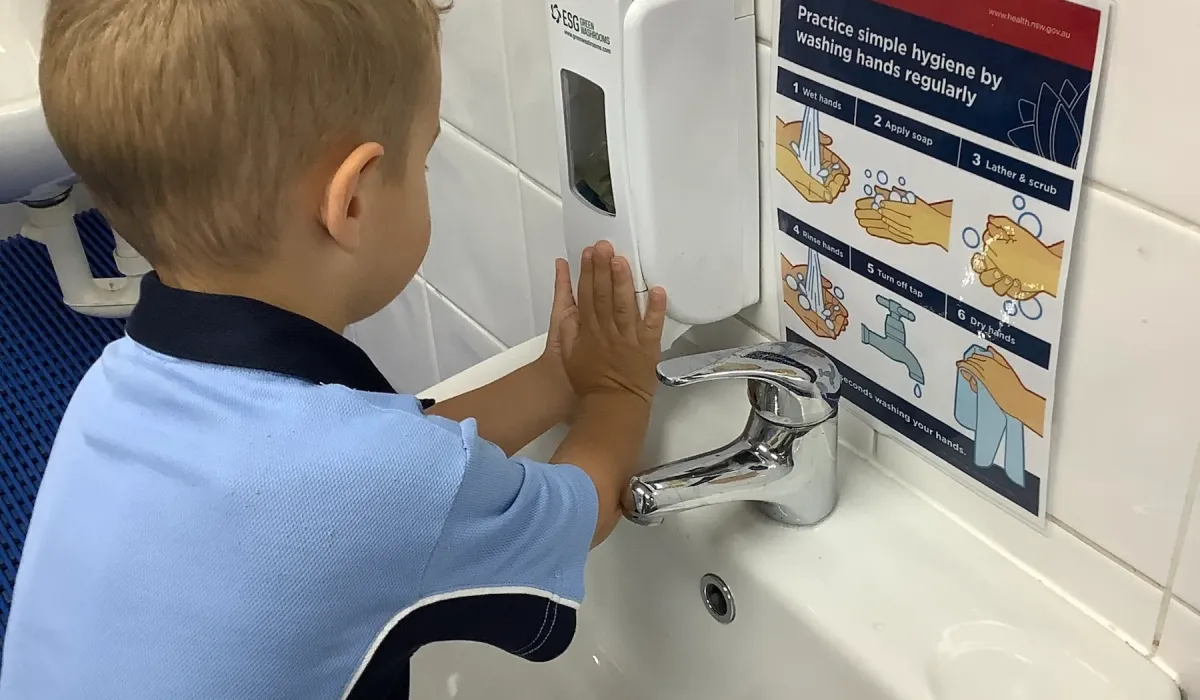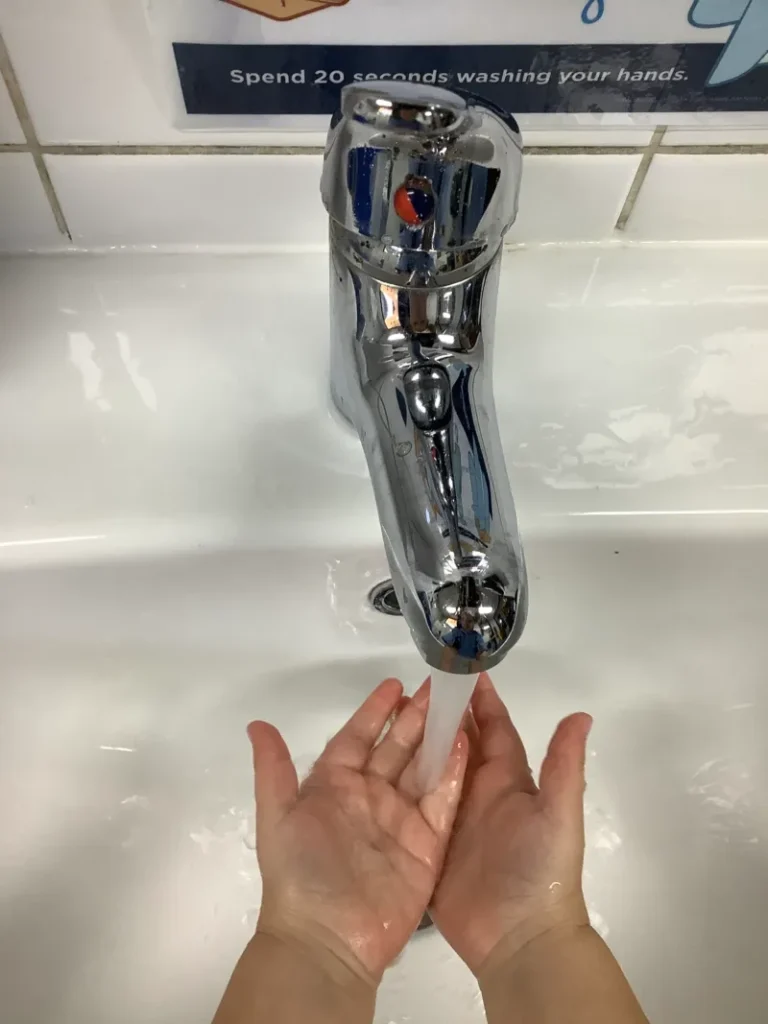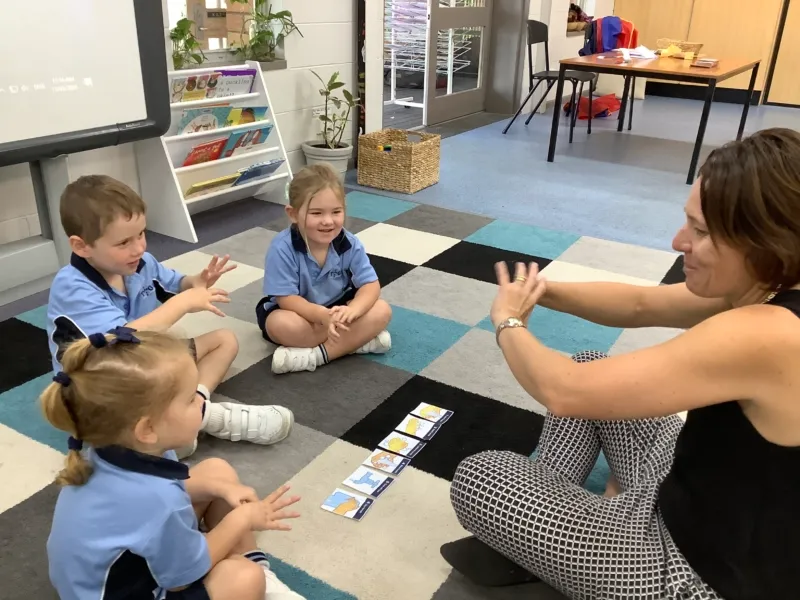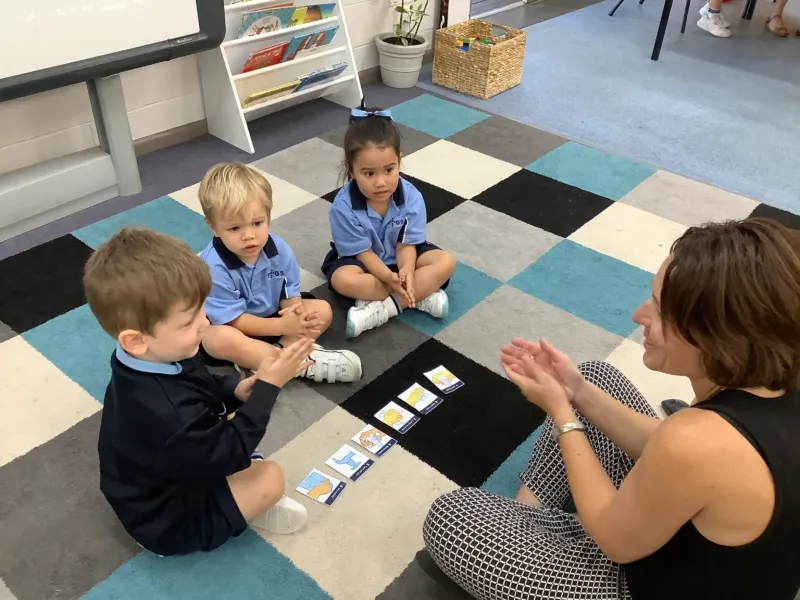
Health and Hygiene – We all Have a Part to Play
A great deal of critical world events have been taking place over recent weeks, especially the Coronavirus outbreak which is currently unfolding and changing on a daily basis.
The media has been flooded with stories, updates and information on COVID-19. All of the worry, information, and misinformation swirling around can be stressful and overwhelming. It requires an adult’s understanding of the world and a healthy dose of rationality to be understood for what it is.
TIGS Prep are closely monitoring the advice provided by the Australian health authorities regarding virus. Staff have enacted new protocols and procedures designed to protect our children and wider school community. I would like to take a bit of your time to reiterate the importance of maintaining excellent hygiene within our staff, student and parent population.
Whilst we already have a very thorough routine of hygiene practices embedded in our daily routine at TIGS Prep, increased hand washing, additional cleaning and sterilisation practices are in place daily.
The Educators are diligently on the alert for any symptoms of Coronavirus, which includes raised temperature, dry cough, breathing difficulties or signs of pneumonia.
Adults and children alike are feeling concern over the virus, and families may wonder how to offer reassurance. Our children are incredibly intuitive, and they not only hear our words, but sense our emotions. If your child’s worried about coronavirus, it’s important to acknowledge and validate their concerns. They need to feel heard and understood before you can address their fears.
Children require our calm, empathetic presence. They need accurate information offered in “just right” amounts, emotional connections, predictable routines, and practical strategies that can help reduce their risk of infection while increasing their resilience and sense of control. Even when real-world circumstances impinge upon our children’s often insular worlds, we can take the opportunity to use our curriculum to intentionally teach the children about their own health and wellbeing.
If you would like more information on how to discuss coronavirus with your child, please read the article provided by our School Counsellor, Ms Audine Evans, which has excellent advice and resources for parents and caregivers.
Because coronavirus is transmitted through droplets, there are some easy hygiene practices children can do that are important, effective and empowering for them. Proper handwashing, sneezing into their elbows, not touching their face with their hands a lot, and using hand sanitiser if it’s available are all excellent strategies for reducing their risk of contracting any virus.
For young children, handwashing is not exactly the easiest task. It has to be taught. The children have been guided to use the proper hand washing techniques throughout the day. As part of our core educational programme, the educator’s role model and supervise the children washing their hands. Our intentional teaching instructed the children to follow respiratory hygiene and cough etiquette:
- Cover the nose/mouth with disposable single-use tissues when coughing, sneezing, wiping and blowing noses;
- Use tissues to contain respiratory secretions;
- Dispose of tissues in the nearest waste receptacle or bin after use,
- If a tissue is not available, cough or sneeze into the inner elbow rather than the hand; attend to hand hygiene immediately after coughing, sneezing or blowing nose.
One way we have encouraged correct and frequent hand washing is during our Munch and Move programme. We have been talking to the class about germs and when and why it’s important to wash hands more frequently than usual. This empowers our children to protect themselves, their friends, and their families. We have explained to the children that we always wash before we eat, after using the bathroom, coming inside after outdoor play, sneezing and after playing with animals.
Twenty seconds is the minimum amount of time people should spend scrubbing with soap if they want to prevent infection, The Centres of Disease Control Prevention (CDC) advises. Wash for at least 20 seconds — singing the “Happy Birthday” song twice or the alphabet song will usually benchmark time of optimal hand washing.
I want to reassure families that we are constantly monitoring the latest advice from various government departments and we will keep you updated should their advice change.




